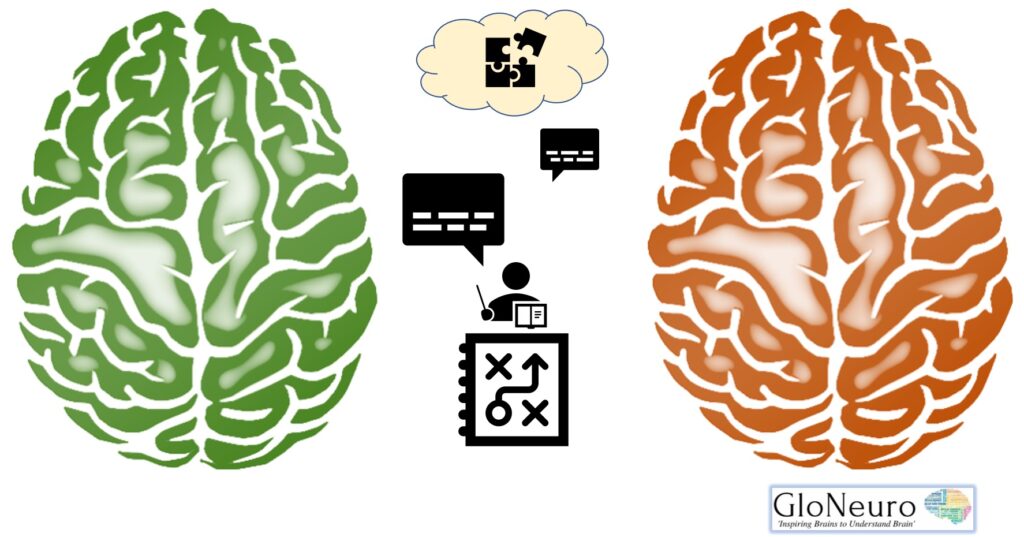Neuropsychological Assessment
Updated on April 10th, 2022
Author: Tia Syal

Why do we think in a particular way and not the other? How do neurological disorders affect the neuropsychology of a person? Is it possible to choose as what to think about and what to avoid? How can we control our brain and mind in the context of our thinking patterns?
There are unbounded questions that revolve around our mind. Unravelling these questions requires an understanding of the relationship between mind and brain. Up to a great extent, the key to this tuft (i.e. the questions) is neuropsychological assessment.
By now, you would have understood we are going to discuss about Neuropsychological Assessment.
What is a neuropsychological assessment?
Neuropsychological assessment is the methodical evaluation of the brain-behavior associations in an individual. It focuses on understanding how the brain and mind are correlated and control a person’s cognition, emotions, thoughts, etc. and all the related disordered conditions (Figure 1). In addition, it contemplates on measuring how well a person’s brain is working.

Purpose of neuropsychological assessment
The neuropsychological test serves diverse functions. The main mental aspects evaluated are as follows:
- General intellect
- Reading/reading cognition
- Language usage and understanding of what others say
- Attention/concentration
- Processing pace
- Understanding and remembering
- Logic
- Executive operations, higher-level aptitudes you use to systematize and devise, manage your time, problem-solve, multi-task, make decisions and exert self-control.
- Visuospatial dexterities
- Motor aptitude
- Temper
- Personality
The usage of neuropsychological evaluations can assess all these aspects and many more mental processes. In addition, these reports also help to assess the disorders related to brain and neural dysfunctionalities.
Why are neuropsychological tests requested?
A neuropsychological assessment can be asked on several grounds comprising:
To assist with diagnosis: Assessment results are periodically used to help apprehend the cause of issues with your thoughts and knowledge. For instance, examination outcomes might be utilized to confine if your mental shifts are due to typical ageing, a neurological condition, despair, strain or any other causes. Your healthcare provider can then employ your neuropsychological analysis results and the outcomes of additional tests, such as brain scans, EEGs, and blood examinations, to come to a diagnosis that will permit you to direct your healthcare.
To specify mental strengths and flaws: Sometimes tests maybe requested by the healthcare provider in order to get a better insight to understand which cognitive operation has varied and by how much degree the variation has occurred. These tests maybe requested because of neurological possibilities or damage like stroke or traumatic brain injury.
To designate a baseline: In some illustrations, an exam is conducted before and after a medical or surgical therapy to resolve if the intervention impacted cognitive capacities. Re-assessment at some moment after the baseline can also indicate how well you’re healing from a stroke or traumatic brain damage and whether or not you’re willing to return to your career, resume driving or accept other tasks.
To aid remedy-planning or other intervention: Test outcomes can be utilized to determine which mental abilities should be the guiding light of rehabilitation if you have had any brain damage. Outcomes also enable therapists to decide which potencies might be capable of reimbursing for defects. The evaluation can deliver the basis for pushing decisions and/or adjustments to school or work plans and define the aptitudes to operate on that are most crucial to you.
What typical objections might signal the demand for a neuropsychological assessment?
If you or your loved ones show any of the following signs, then you must visit and get a referral from your doctor for taking up a neuropsychological assessment:
- Changes in short-term memory (unusually forgetting things)
- Often losing items, getting mislaid easily
- Feeling lethargic
- Poor concentration and engagement. Getting muddled in conversation.
- Speech difficulty. Problems in speaking or uncovering words or cannot comprehend what others say.
- Difficulty in identifying things.
- Visuospatial hardships including problems in drawing or utilizing a map.
- Poor conclusion/decision-making.
- An unexplained shift in personality, growth in anxiety or depression, evolution of delusions or hallucinations.
- New problem with learning or managing invoices or finances.
- Can’t identify acquainted individuals.
What does a neuropsychological assessment implicate?
The neuropsychologist will speak with you to comprehend any problems you and your family members might have regarding your mental functioning. He or she will also examine your medical and psychological past and scholarly background. If a household member comes to the evaluation with you, the neuropsychologist may request your approval to interview him or her.
The neuropsychologist will select the tests as requested by the healthcare provider and on the basis of the past neurological certainties and experiences. All this is kept in consideration and the most suitable test is selected by the psychologist. The tests are presented and scored by a trained technician known as a psychometrist who functions under the surveillance of the neuropsychologist. The examinations generally concern writing or drawing, unravelling puzzles or responding to questions, and replying to things delivered on a computer. Most individuals find some of the trials to be quite effortless and others quite challenging. However, it is crucial to operate as hard as possible on all of the difficulties for the outcomes to be most edifying.
You will also answer questionnaires about mood and psychological signs. For example, parents of kids referred for neuropsychological assessments often complete questionnaires concerning their child’s demeanor.
Finally, the neuropsychologist pens a report that outlines the results and incorporates guidance for enhancing cognition (e.g., attention, memory) and perhaps refer to other specialists.
In conclusion, a neuropsychological assessment can be beneficial to anyone who has been experiencing behavioral changes, mental disorders, personality shifts and all the other things mentioned above. Nevertheless, the terms and conditions should be well-read before taking any assessment.
Illustrations: Dr. Shampa Ghosh
Reviewer: Areeba Aziz
Editor: Dr. Jitendra Kumar Sinha